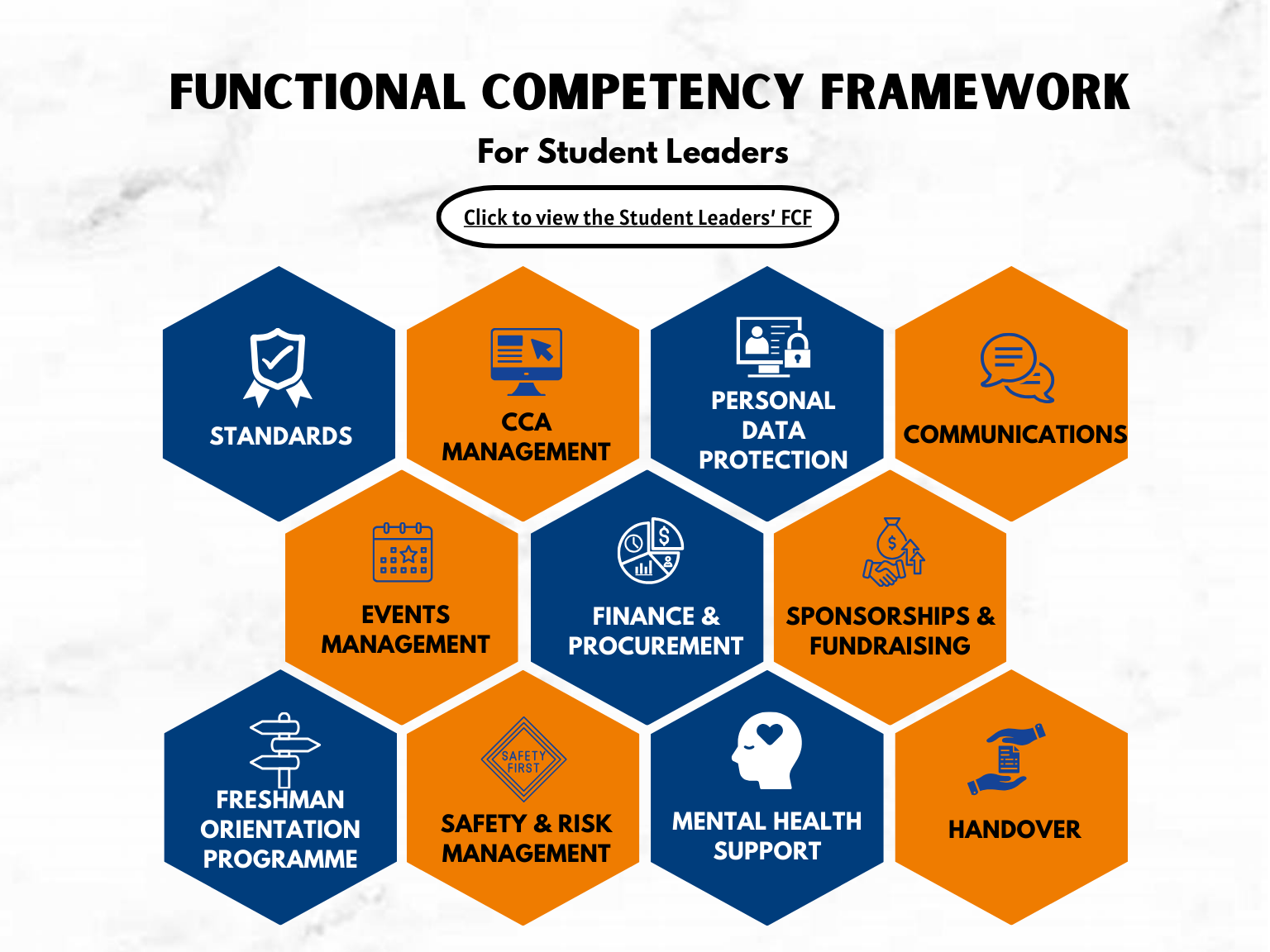Get Equipped
Trainings and Workshops
The Student Leader Functional Competency Framework covers topic areas pertinent to student life activities of official student organisations on campus. Student leaders are encouraged to build up competencies outside of what is essential for their exco positions.
Out of the many trainings and workshops available, the following are essential for key appointment holders of student organisations:


